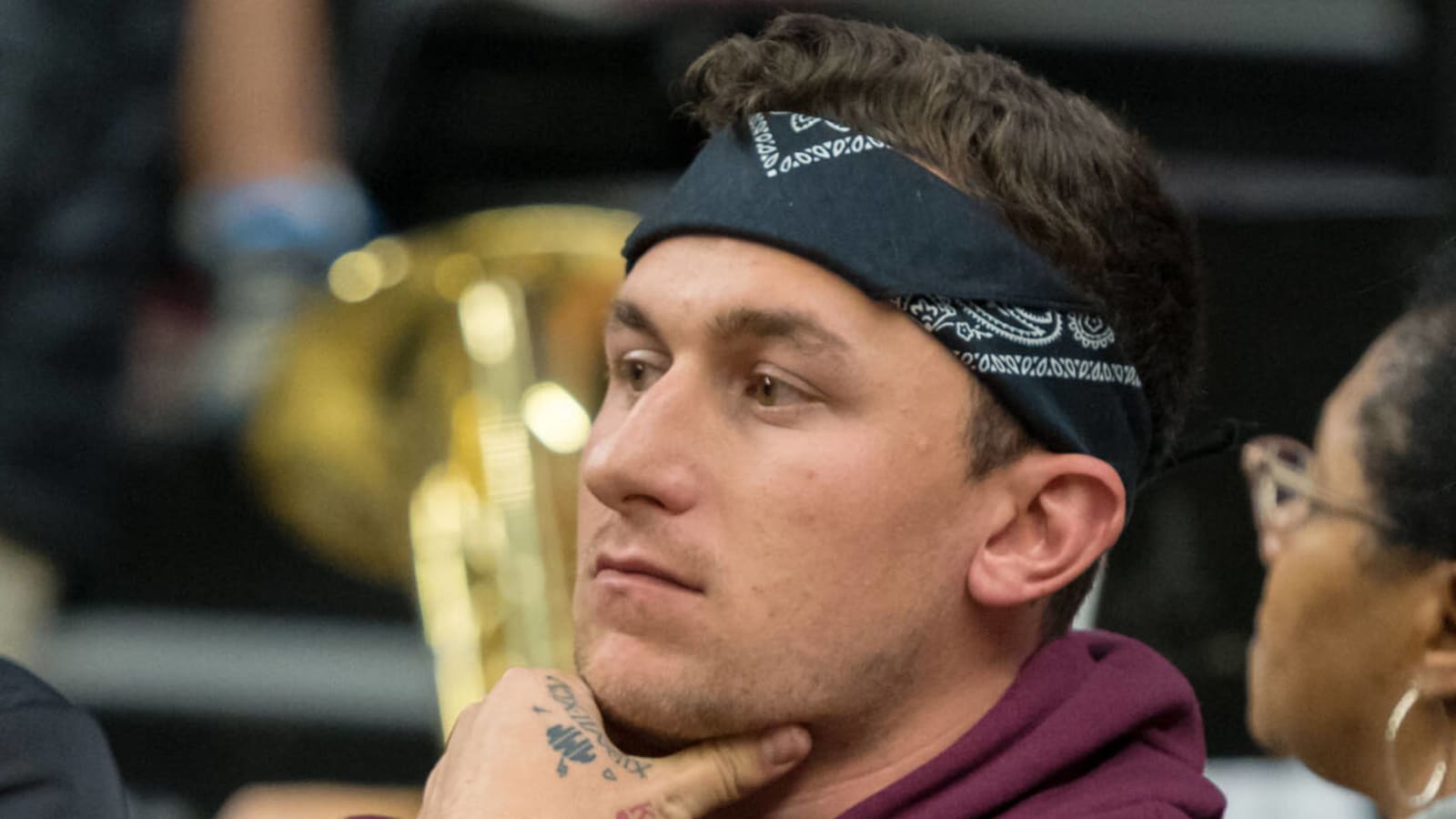
Pro athletes can give us stark reminders that they're human, too
It’s hard not to watch professional athletes and be in awe. Whether on the field, court or wherever they operate, these men and women do incredible things – and they often make them look easy. This is why when our heroes prove that they are in fact human just like the rest of us, it can be rather jarring.
In 2012, a little-known backup quarterback took over the reins at Texas A&M and went on a tear that has yet to be duplicated. Against Arkansas, Johnny Manziel broke a 43-year-old record by producing 557 yards of offense. Not long after that, he broke his own record against Louisiana Tech with 576 total yards. And later that fall, he torched No. 1 Alabama for 345 of A&M’s 418 yards. Manziel easily won the Heisman Trophy his freshman year and perhaps should’ve won it again; he finished the 2013 season with over 4,000 yards, 37 touchdowns and a passer rating of 172.9.
Most football fans know the rest of this story. Manziel was drafted by the Cleveland Browns in 2014 and had a short and disappointing career in the NFL. He has since played in a few different pro leagues. But, this wasn’t just a case of a great college player not being able to make it in the big leagues. A new documentary reveals the inner demons he was struggling with.
The film chronicles his drug use, the assault charge he faced for attacking his girlfriend and his bipolar disorder diagnosis. Most alarming, Manziel talks about how he bought a gun to end his life after the Browns released him.
"I had planned to do everything I wanted to do at that point in my life, spend as much money as I possibly could and then my plan was to take my life," he said. "I wanted to get as bad as humanly possible to where it made sense, and it made it seem like an excuse and an out for me."
For some reason, the gun didn’t work. Manziel has used the reprieve to try to get his life back together.
Another example of a player dealing with a lot of scrutiy is Ricky Rubio. While he never turned into the second coming of Pistol Pete Maravich as many thought he would, he has had a solid 12-year career in the NBA. At only 32, Rubio could have many productive years ahead of him and in fact, was planning to again play for Spain in the upcoming World Cup. But then he made the decision to take a break for his own mental well-being.
"I have decided to stop my professional activity to take care of my mental health,” he said without going into further details. “I want to thank all the support I have received from the [Spanish national] team to understand my decision. Today family makes more sense than ever.”
With mental health still somewhat of a taboo subject – especially for athletes, who risk getting labeled as “soft” or “weak” – it’s good to see players being open and honest about what they’re going through. It’s also good knowing that no matter how much they may dazzle us, no matter how much money they make, they still have to navigate pretty much the same things we all do.
More must-reads:
- Johnny Manziel makes shocking admission about Browns stint
- Johnny Manziel details struggles with Browns in new documentary
- The '100 catches in an NFL season' quiz
Breaking News
Customize Your Newsletter
 +
+
Get the latest news and rumors, customized to your favorite sports and teams. Emailed daily. Always free!

